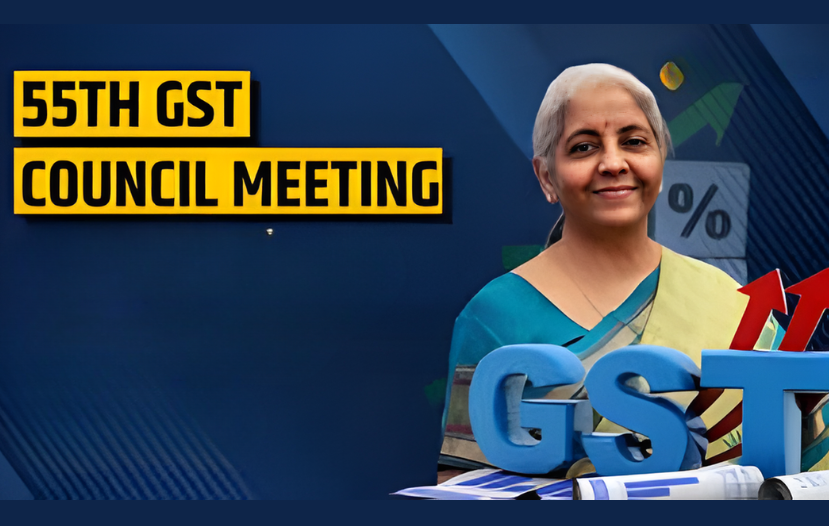Discover the key takeaways from the 55th GST Council Meeting held on December 21, 2024. Learn about GST exemptions, rate rationalization, reforms, and decisions impacting businesses and the Indian economy.


The 55th GST Council Meeting was held on December 21, 2024, in Jaisalmer, Rajasthan. It was under the chairmanship of Finance Minister Smt. Nirmala Sitharaman. It is a landmark move toward simplifying India's Goods and Services Tax framework. It focused on the experience of taxpayers and revenue growth, and it decided on many key issues that would have a strong impact on businesses and the Indian economy.
1. Relief for Small Payment Aggregators
The GST Council decided to exempt payment aggregators from GST for transactions less than Rs. 2,000 to promote digital payments and ease the financial burden on small businesses.
2. Clarification on Bank Penalties
The Council clarified that GST will not be applicable on penal charges imposed by banks and non-banking financial companies (NBFCs) for non-compliance with loan terms.
3. Taxation of Used Electric Vehicles
No GST shall be payable upon the sale of used EVs between persons; however, enterprises selling used, refurbished EVs shall attract 18% of GST on margin value like the levy on all used vehicles.
4. Relaxation from Paying Late Fee for GSTR-9C Filing
In an effort to alleviate the burdens of taxpayers finding it difficult to file, the GST Council further recommended that no late fee will be levied for delayed filing of GSTR-9C from 2017-18 to 2022-23.
5. Reduction in Pre-deposit for Appeals
To lighten the tax burden of the taxpayers, the Council advised the pre-deposit amount payable at the time of filing appeals before the Appellate Tribunal, where the cases involve only demands for penalty without any tax liability.
The meeting also covered the recommendations put forth by various GoMs constituted to discuss some of the crucial issues of GST:
1. Compensation Cess
The GoM on compensation cess presented its report, which is likely to present its views on the extension of the cess beyond its cut-off date. Likely to be explored are adjustments in the cess rates on specific items.
2. Rate Rationalization The GoM on rate rationalization has suggested a review of the GST rate structure, inter alia:
- Taxation of demerit goods such as tobacco products and aerated drinks.
GST rates on essentials to be reduced to make it more affordable.
Inverted duty structure to be addressed, wherein the tax rate on inputs is higher than that on the finished product, leading to accumulation of input tax credits.
1. IMS Reforms
The Council debated amendments to the CGST Act and Rules with a view to strengthening the functionality of the IMS, which include auto-population of GSTR-2B (input tax credit register) and improved processes for the issuance and reconciliation of credit notes.
2. GST Registration Based on Risk Profile
The GST Council proposed streamlining the GST registration process by creating a risk profiling of taxpayers. This would mean that compliance verification and risk assessment could be much more targeted in its application, while still making the process of registration easy for low-risk taxpayers.
The 55th GST Council Meeting has marked a big milestone in the evolution of the GST framework in India. What is significant in these changes is that they relate to crucial decisions made on tax exemptions, rate rationalization, and clarifications on existing rules. Business entities, consumers, and the overall economic landscape are expected to experience a positive change as a result. Once these decisions begin to be implemented, it will further simplify compliance, promote digital payments, and enhance the ease of doing business in India.

